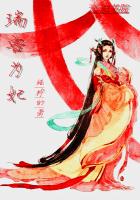He usually found that if she was looking at the picture still, she was not seeing it.Her eyes were fixed, but her thoughts were wandering, and an image more vivid than any that Raphael or Titian had drawn had superposed itself upon the canvas.
She asked fewer questions than before, and seemed to have lost heart for consulting guide-books and encyclopaedias.From time to time, however, she uttered a deep, full murmur of gratification.
Florence in midsummer was perfectly void of travelers, and the dense little city gave forth its aesthetic aroma with a larger frankness, as the nightingale sings when the listeners have departed.
The churches were deliciously cool, but the gray streets were stifling, and the great, dove-tailed polygons of pavement as hot to the tread as molten lava.Rowland, who suffered from intense heat, would have found all this uncomfortable in solitude;but Florence had never charmed him so completely as during these midsummer strolls with his preoccupied companion.
One evening they had arranged to go on the morrow to the Academy.
Miss Garland kept her appointment, but as soon as she appeared, Rowland saw that something painful had befallen her.
She was doing her best to look at her ease, but her face bore the marks of tears.Rowland told her that he was afraid she was ill, and that if she preferred to give up the visit to Florence he would submit with what grace he might.She hesitated a moment, and then said she preferred to adhere to their plan.
"I am not well," she presently added, "but it 's a moral malady, and in such cases I consider your company beneficial.""But if I am to be your doctor," said Rowland, "you must tell me how your illness began.""I can tell you very little.It began with Mrs.Hudson being unjust to me, for the first time in her life.
And now I am already better!"
I mention this incident because it confirmed an impression of Rowland's from which he had derived a certain consolation.
He knew that Mrs.Hudson considered her son's ill-regulated passion for Christina Light a very regrettable affair, but he suspected that her manifest compassion had been all for Roderick, and not in the least for Mary Garland.She was fond of the young girl, but she had valued her primarily, during the last two years, as a kind of assistant priestess at Roderick's shrine.
Roderick had honored her by asking her to become his wife, but that poor Mary had any rights in consequence Mrs.Hudson was quite incapable of perceiving.Her sentiment on the subject was of course not very vigorously formulated, but she was unprepared to admit that Miss Garland had any ground for complaint.
Roderick was very unhappy; that was enough, and Mary's duty was to join her patience and her prayers to those of his doting mother.
Roderick might fall in love with whom he pleased; no doubt that women trained in the mysterious Roman arts were only too proud and too happy to make it easy for him; and it was very presuming in poor, plain Mary to feel any personal resentment.Mrs.Hudson's philosophy was of too narrow a scope to suggest that a mother may forgive where a mistress cannot, and she thought herself greatly aggrieved that Miss Garland was not so disinterested as herself.
She was ready to drop dead in Roderick's service, and she was quite capable of seeing her companion falter and grow faint, without a tremor of compassion.Mary, apparently, had given some intimation of her belief that if constancy is the flower of devotion, reciprocity is the guarantee of constancy, and Mrs.Hudson had rebuked her failing faith and called it cruelty.
That Miss Garland had found it hard to reason with Mrs.Hudson, that she suffered deeply from the elder lady's softly bitter imputations, and that, in short, he had companionship in misfortune--all this made Rowland find a certain luxury in his discomfort.
The party at Villa Pandolfini used to sit in the garden in the evenings, which Rowland almost always spent with them.
Their entertainment was in the heavily perfumed air, in the dim, far starlight, in the crenelated tower of a neighboring villa, which loomed vaguely above them in the warm darkness, and in such conversation as depressing reflections allowed.
Roderick, clad always in white, roamed about like a restless ghost, silent for the most part, but ****** from time to time a brief observation, characterized by the most fantastic cynicism.
Roderick's contributions to the conversation were indeed always so fantastic that, though half the time they wearied him unspeakably, Rowland made an effort to treat them humorously.
With Rowland alone Roderick talked a great deal more; often about things related to his own work, or about artistic and aesthetic matters in general.He talked as well as ever, or even better;but his talk always ended in a torrent of groans and curses.
When this current set in, Rowland straightway turned his back or stopped his ears, and Roderick now witnessed these movements with perfect indifference.When the latter was absent from the star-lit circle in the garden, as often happened, Rowland knew nothing of his whereabouts; he supposed him to be in Florence, but he never learned what he did there.
All this was not enlivening, but with an even, muffled tread the days followed each other, and brought the month of August to a close.
One particular evening at this time was most enchanting;there was a perfect moon, looking so extraordinarily large that it made everything its light fell upon seem small;the heat was tempered by a soft west wind, and the wind was laden with the odors of the early harvest.The hills, the vale of the Arno, the shrunken river, the domes of Florence, were vaguely effaced by the dense moonshine; they looked as if they were melting out of sight like an exorcised vision.















